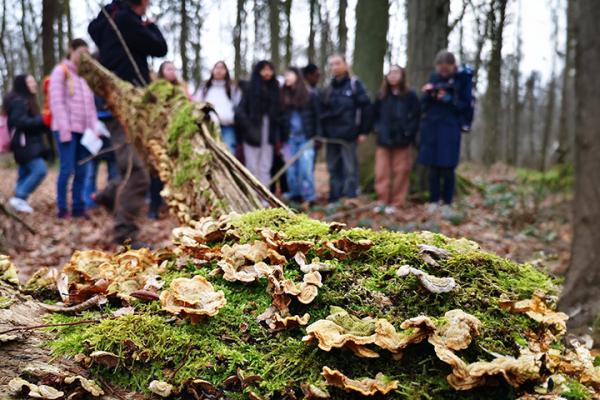If we want a green economy we need greener politics – Jan Dusik, UN Environment
The green economy is an ambitious transformation. What are the main barriers standing in its way?
‘This transition to a green economy is an ongoing process and there has already been a major shift in many sectors, but if we are to live within planetary boundaries while achieving sustainable growth, we still need to think in a completely different way. There is a need for citizens to get more involved, but I would say the major obstacle at the moment is political will, the readiness of leaders to embrace this change and show the direction that the people and the private sector should follow.’
Could the lack of political will towards the green economy hold sustainable technology back?
‘Technology is evolving in quite positive ways. When you look at Bertrand Piccard and his solar plane he flew around the world, it confirms that solutions do exist. There will always be new innovations and innovators, and we will always be able to move further in terms of tapping the potential of renewable energy, reducing and reusing waste, saving water, etc. If the right incentives are there and the right technology is not hindered, then there won’t be a technology gap. There is always an evolution, we will always know more in five years than we do today; technology is not the limiting factor.’
If technology isn’t an obstacle for the green economy, what’s stopping us from scaling-up sustainable innovations?
‘We need to have the right legal environment and regulatory conditions that facilitate innovative solutions which have the objective of making technology leaps in the green economy. Then there is financing. We need to look at combining both public and private funding, a type of blended funding, that will help deploy solutions.’
The EU is already doing this through the Joint Technology Initiatives such as Fuel Cells and Hydrogen and Clean Sky. What is the next step it must take?
‘These are very real examples of how potential limitations to green economy technologies can be surpassed. Ultimately, the deployment and mainstreaming of such initiatives also need to be facilitated by solid environmental laws, and a continuous political choice to switch to a green economy - which means developing the right infrastructure and regulatory frameworks in parallel. On these, the EU has already proven that it is capable of leading.
‘We already have examples showing the opportunities for success when public and private finance join forces. For example, as the head of UN Environment, Erik Solheim, said in Bratislava (Slovakia at the Transition to the Green Economy conference), leading development banks combined with the private sector to invest USD 80 billion in tackling climate change in 2015 alone. These are ways forward for the nature and scale of transition we need.’
Where exactly will the money in this blended finance come from?
‘For private finance it will be mainly banks, and that’s where we need political will again; to look at how they are set up, how they operate within existing policies and the regulatory direction they go in. Financial systems don’t live in a vacuum, they live in a certain political and regulatory space, that’s why we need the political leaders to embrace the green economy and help shape this private-sector process.
“‘The change is already happening, those who want to be the industries of the future will find opportunities waiting for them.’
‘The existing traditional resources in the public sector will also play a key role, be it investment into research at the national level, official development assistance, or money from carbon trading. The implementation of the new climate policies will also trigger a moment of investment.’
How can we be sure that there will be a balance between growth and sustainability?
‘There will be no growth without sufficient resources and these resources are limited by the planet. If we look at how agriculture is set up in the world, it is not sustainable. We have one third of food wasted and people don’t have access to food, meanwhile water and energy resources are shrinking. If an economy wants to be healthy in the long term, then it needs to be balanced with the services that the environment offers; it goes hand-in-hand. This mental shift is happening and we will see more of it. If you look at China and the change that has happened there, they moved from massive industrial growth without looking at their environmental impact to now being a (leader) in the uptake of renewable energy and greening their industry.’
While we wait for more political will and blended finance, how can we convince European industries to shift into a green economy?
‘Every waste, whether it is water or energy, is a loss in economic terms and this is a starting point. The availability of resources is finite and there will be more financial pressure on businesses to minimise their needs and reuse waste. This trend will favour those who can innovate and live in this new paradigm of a green economy, or a circular economy, because they will have a competitive advantage. Those who pursue the business-as-usual approach will eventually be phased out.
‘It is a matter of choice on how these industries will transform themselves. For instance, Total (the oil and gas company) said they will stop drilling in the Arctic; that is a major evolution when you see how oil companies behave and how they are now investing into renewable energy. The change is already happening, those who want to be the industries of the future will find opportunities waiting for them.’




